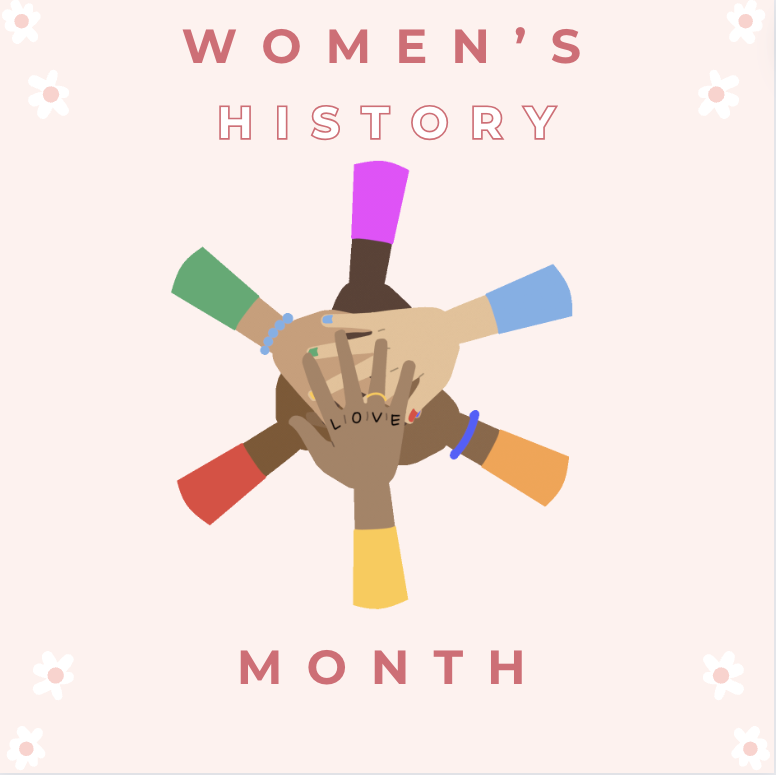The history of the women’s movement is significant for all of humanity; it is not just a story about and for women, although herstory (quite rightly) is at its forefront. Since the beginning of time, women’s impact upon the world has been so remarkable, so foundational, that it is almost impossible to conceive.
Every March, America celebrates National Women’s History Month to honor women’s diverse and often underrated achievements. It is marked by television broadcasts, political speeches, classroom learning initiatives and social media posts dedicated to honoring the enduring legacy of women everywhere.
English instructor April Lenoir shared her thoughts on the importance of Women’s History Month. She noted that for many years, women had to fight for their rights, including the right to vote in elections, receive an education, own property or receive a salary (and keep it for themselves) – and the fight is not over yet.
“Women have been fighting not just for women’s rights, but everyone’s rights. It is important that this fight continues with each new generation,” Lenoir stated.
Each year, Women’s History Month is thematic and attempts to promote reflection, conversation and awareness of issues important to women. The theme this year is entitled, “Women who Advocate for Equity, Diversity and Inclusion.”
Kenneth Bolton, department head and associate professor of criminal justice at Southeastern, said Women’s History Month provides an opportunity for women of all ages to reflect on the achievements of women throughout history and to understand women as active creators of the world we live in.
“In a historically male-dominated patriarchal society there is value in learning, understanding, reflecting and engaging in appropriate action to overcome continuing patterns of male domination,” Bolton said.
Women’s History Month originated as a week-long celebration of women’s contributions to culture, history and society, which was first organized as Women’s History Week, by the Sonoma, California School District in 1978.
In 1980, President Jimmy Carter declared the week of March 8 National Women’s History Week. Later, in 1987, Congress extended this celebration to the whole of March.
Across many different societies, women have made significant contributions that continue to have an indelible impact on the world.
Payton Laskie, president of the Association for Computing Machinery at SLU, is a woman in a male-dominated field, which is challenging at times. However, the Southeastern Computer Science Department offers tremendous support to the female students at SLU.
“I have had moments where I feel like I have to prove myself to show that I am on par with my male colleagues, but overall, I have had a fantastic experience at SLU and would not change it for the world,” Laskie said.
Women inspire other women to dive into the unknown, face their challenges and work toward their goals. Laskie found her role model in Dr. Bonnie Achee, the department head of computer science.
Laskie said she lives by Achee’s words, “Even if you lose everything and have absolutely nothing, you will always have the knowledge and education you have acquired.”
Business has historically been an overwhelmingly male-dominated arena, but in recent years significant progress has been made in ensuring gender equality. Efforts are being made to increase diversity and inclusivity in the business world.
Southeastern has many different interest clubs and associations, such as Women in Business, a women-led business organization. It connects ambitious and passionate like-minded women who want to create an impact on our society.
Olwethu Dlamini is the treasurer of Women in Business. Being a woman in the business field can be intimidating and that is what brings them all together, shared goals and interests.
As a woman in business, Dlamini said she must work harder to be acknowledged and respected, which is a constant challenge.
“I think people treat me differently because I’m a Black woman. I tend to be overlooked in a lot of situations or my opinion is ignored in some cases. So if I want my voice to be heard I have to prove that I belong,” Dlamini explained.
Dedicating a whole month to honoring the achievements and contributions women have made to society both present and past is a great way to show appreciation for the work they have done.
As Lenoir said, Women’s History Month is about education, and the struggle for women’s rights is just as relevant now as it was in the 1970s. We must look to and learn from the past in order to continue moving history – or in this case, herstory – forward.








